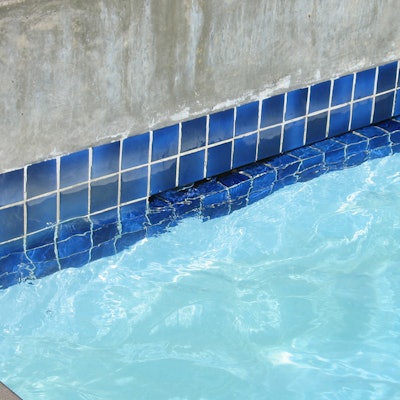
Swimming pools are right up there with yachts and caviar in terms of products associated with the word “luxury.” But unlike floating mansions and fish-egg delicacies of the rich and famous, there actually are times when swimming pools become necessary, even vital to survival.
To prove that point, all you have to do is walk outside. The summer of 2019 has seen record-shattering temperatures across the U.S. and much of the world, with all-time highs in places like Juno, Alaska and Novosibirsk, Siberia. Paris saw triple-digit temps that rival Death Valley. And in places like Phoenix and Palm Springs where highs in the 120s are not uncommon, well, it’s a wonder anyone was able to survive.
If there’s ever been a season where the utter necessity of pools has come into searing focus, it’s been over the past two thermally challenging months. Ironically, this summer’s blast-furnace was preceded by a spring that was unseasonably wet and cold. But in mid-July the switch flipped and millions became intimately acquainted with the term “heat index.” To make matters worse, the heat has hit areas where most residents don’t have central air conditioning.
Across the U.S. and elsewhere, community aquatic facilities, waterparks and neighborhood splash pads have seen record attendance. Fountains and reflecting ponds typically devoid of humans have hosted crowds seeking relief. Fire hydrants have become cooling stations and the garden hose elevated to the most popular feature in the backyard — unless, of course, there’s a pool nearby.
The deluge of swimming pool use has taxed lifeguard and maintenance staffs from Houston to Salem and has redefined the term “bather load.” Is it any wonder that outbreaks of waterborne illnesses such as cryptosporidium have increased dramatically? More people are using pools than ever before and as a result some of those bodies of water are dirtier than ever.
In some ways, this blistering boon can be seen as good news for the pool industry. The essential nature of swimming pools has been well known for decades upon decades in places like Las Vegas, southern California, Texas and Florida. But now, I suspect their importance is being felt in seasonal markets more than ever. Will the stifling heat of this summer result in an uptick in pool sales? Probably — the industry has always been driven by weather. But now, we may well be entering an era where pools aren’t just an expensive sidebar to people’s lives, but an essential feature in a modern home and in forward-thinking communities and institutions.
Of course, human nature being what it is, when the mercury falls as autumn turns to winter, it’s likely that people who are suffering now will simply forget until next year. But for those of us who have a vested interest in promoting the aquatic lifestyle, it probably makes sense to make hay while the sun is blazing with increased marketing and potent messaging about the importance of being ready when these dangerously hot conditions return.
“Don’t wait until next year when it’s too late, plan your pool now while there’s still time to make sure you’ll be ready for spring.”
And for hellfire’s sake, let’s abandon the idea that pools are only ever purely luxury items. I know people who live in the Mojave Desert where 125 degrees is not unheard of and they will tell you that swimming pools are almost as essential as air conditioners and wide brim hats.
One more point: Along with the heat and historically dry conditions comes the threat of fire. Every year, it seems, fire season is longer and more severe. I’m always dismayed to see homes burn down right next to pools full of water. Would it have been different if the pool was equipped to use its water to fight fire? Maybe. I personally know of at least one instance where a homeowner used a fire hose and pump system installed on his swimming pool to save his house. He’ll tell you that his 40,000-gallon pool is an essential resource. Again, in an even more direct way, the pool becomes essential.
I think they always have been, but maybe now it’s time to more directly recognize that fact.












































